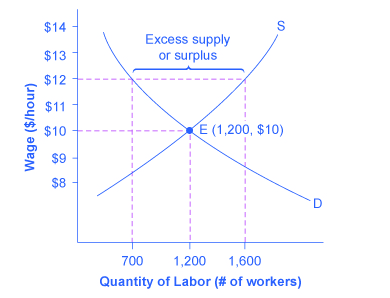PROCEDURE FOR FIXING AND REVISING MINIMUM WAGES
(Explained - Section 5, The Minimum Wages Act, 1948)
In fixing minimum rates of wages in respect of any scheduled employment for the first time or in revising minimum rates of wages, the appropriate Government can follow either of the two methods described below.
First Method - Committee Method [Section 5(1)(a), The Minimum Wages Act, 1948]
This method is known as the ‘Committee Method’. The appropriate Government may appoint as many committees and sub-committees as it considers necessary to hold enquiries and advise it in respect of such fixation or revision as the case may be. After considering the advise of the committee or committees, the appropriate Government shall, by notification in the Official Gazette fix or revise the minimum rates of wages. The wage rates shall come into force from such date as may be specified in the notification. If no date is specified, wage rates shall come into force on the expiry of three months from the date of the issue of the notification.
Note: It was held in Edward Mills Co. v. State of Ajmer (1955) A.I.R. SC, that Committee appointed under Section 5 is only an advisory body and that Government is not bound to accept its recommendations.
As regards composition of the Committee, Section 9 of The Minimum Wages Act, 1948 lays down that it shall consist of persons to be nominated by the appropriate Government representing employers and employee in the scheduled employment, who shall be equal in number and independent persons not exceeding 1/3rd of its total number of members. One of such independent persons shall be appointed as the Chairman of the Committee by the appropriate Government.
Second Method - Notification Method [Section 5(1)(b) The Minimum Wages Act, 1948]
The method is known as the ‘Notification Method’. When fixing minimum wages under Section 5(1)(b), the appropriate Government shall by notification, in the Official Gazette publish its proposals for the information of persons likely to be affected thereby and specify a date not less than 2 months from the date of notification, on which the proposals will be taken into consideration.
The representations received will be considered by the appropriate Government. It will also consult the Advisory Board constituted under Section 7 and thereafter fix or revise the minimum rates of wages by notification in the Official Gazette. The new wage rates shall come into force from such date as may be specified in the notification.
However, if no date is specified, the notification shall come into force on expiry of three months from the date of its issue. Minimum wage rates can be revised with retrospective effect. [1996 II LLJ 267 Kar.].
ADVISORY BOARD
The advisory board is constituted under Section 7 of the Act by the appropriate Government for the purpose of coordinating the work of committees and subcommittees appointed under Section 5 of the Act and advising the appropriate Government generally in the matter of fixing and revising of minimum rates of wages.
According to Section 9 of the Act, the advisory board shall consist of persons to be nominated by the appropriate Government representing employers and employees in the scheduled employment who shall be equal in number, and independent persons not exceeding 1/3rd of its total number of members, one of such independent persons shall be appointed as the Chairman by the appropriate Government.
It is not necessary that the Board shall consist of representatives of any particular industry or of each and every scheduled employment;
B.Y. Kashatriya vs. S.A.T. Bidi Kamgar Union A.I.R. (1963) S.C. 806.
An independent person in the context of Section 9 means a person who is neither an employer nor an employee in the employment for which the minimum wages are to be fixed. In the case of State of Rajasthan v. Hari Ram Nathwani, (1975) SCC 356, it was held that the mere fact that a person happens to be a Government servant will not divert him of the character of the independent person.

Comments